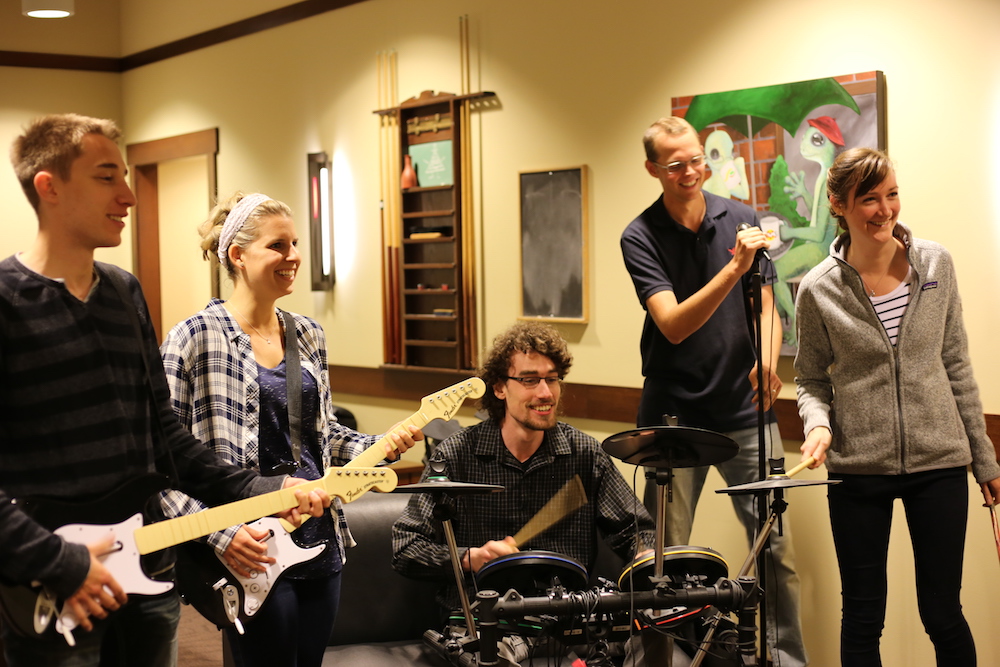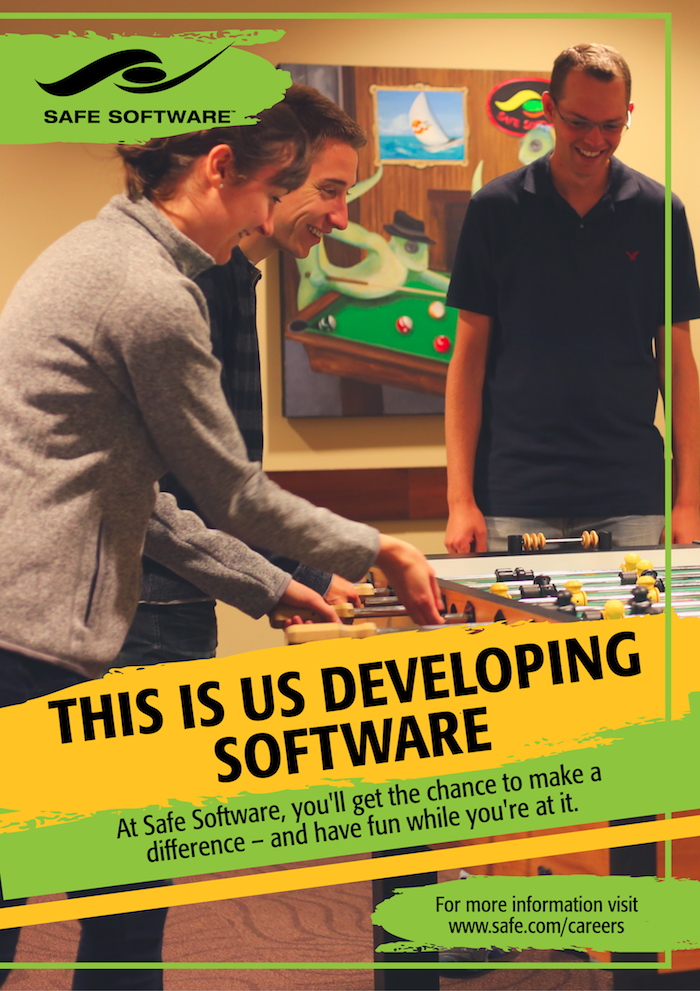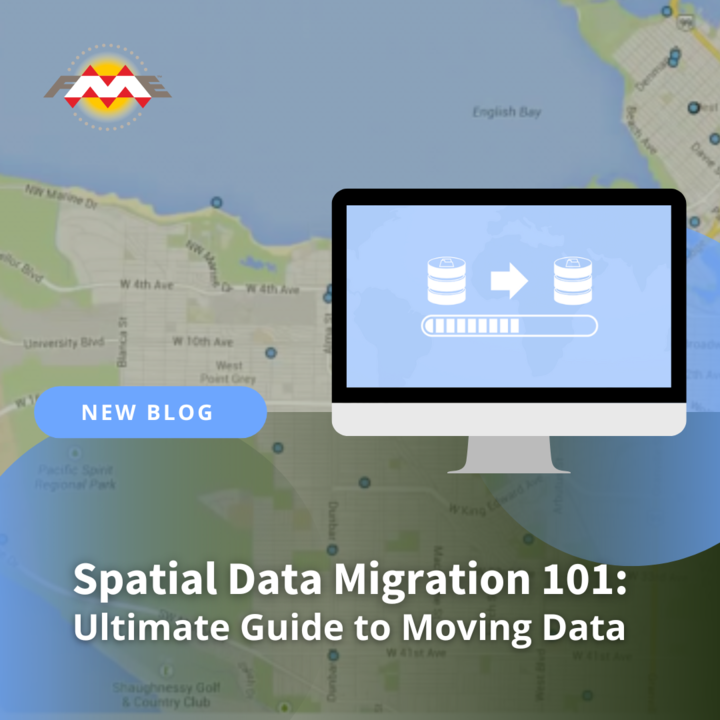What do tech companies like Safe Software look for in potential employees? Our recruiters share advice on the interview process, with tips on how to tackle those notorious problem-solving questions.

Most tech companies have a multi-step interview process that includes a phone screen, a face-to-face interview, and a hands-on technical interview. The phone screen is usually casual and non-technical, involving a chat about what kind of role you’re looking for and what your experience includes. The face-to-face and technical interviews are more in depth.
The face-to-face interview
Your first tip: Engage the interviewer in a conversation. This isn’t a police interrogation. The interview should be a two-way conversation about your qualifications, the role, and whether this is a good fit.
What’s the main thing companies look for? For some, maybe it’s the IQ of Stephen Hawking, or the ability to think on your feet better than Tina Fey — but for us (and most modern tech companies) the key is balance. Companies want someone with aptitude for the position, and with equal measure, someone who gives off a sense of motivation, empathy, and a general good vibe!
The agenda
The interview will often start with an outline of what’s about to happen.
Pay attention to how long you have for each component. If you know you have ten minutes to discuss a project you’ve worked on, and it’s been twenty minutes and you’re still talking about the same project, you’re probably rambling. As with any conversation where technical details and jargon are involved, it helps to check in with the other party now and then to make sure they are following.
About the company
Your interviewer will likely spend some time telling you about the company and its culture. That said, you should research the company and products beforehand. You don’t need to be an expert, but you should know what you’re applying for and be excited about it.
If you’re interviewing for Safe Software, we know FME is pretty technical, so don’t feel like you need to understand everything about it! We recommend you read a few blog posts and perhaps explore our customer gallery to get a sense of what we do. Plus you can explore our careers page to get to know our culture and what it’s like to work here.
Who you are
Come prepared with stories that back up your resume. The interviewer will want to know more about the awesome projects you’ve done, and how you think these skills will help you in the role you’re applying for. At a Safe Software interview, we’ll ask you to explain a project you’ve done recently (one with a discrete beginning and end).
When explaining a technical project, start at the tip of the iceberg. Give a high-level overview of the project, explaining it as though to a newbie, and then get into the details. The interviewer wants to understand the project, not be uber impressed by your vast technical vocabulary. Remember this part is as much about communication skills as it is about technology.
Technical discussion
Surprise! A technical discussion in a technical interview. Time to see if your knowledge and skills are relevant to the position you’re applying for. If it’s a developer position, brush up on object-oriented programming concepts; for IT, networking and security, etc. This might involve paper, so bring a pen.
You won’t know all the answers, and that’s ok! This isn’t about right/wrong. The interviewer wants to see you communicate both ideas you’re familiar with, and those you’re not.
Here are some tips to help you keep your footing during the technical discussion.

First, feel free to ask for clarification on the questions before jumping in to answer. It never hurts to paraphrase the question as a way of clarifying the scope (which also conveniently gives you a bit more thinking time). Then talk through the problem with the interviewer.
Thinking aloud is best so the interviewer can engage in your thought process, but of course people need time to compose their thoughts. It’s ok to pause when you need to. Just let the interviewer know that you need a moment to think — this helps to avoid awkward silences.
As in real life, while you’re problem-solving it doesn’t hurt to check in now and then to make sure you’re on the right track. Asking the interviewer whether he wants more information could help you gauge whether you’re on track, plus it keeps things conversational. If the interviewer is silent when you finish, it’s not that he’s waiting for you to keep talking — he’s probably giving you a sec in case you’re still thinking. If you’re done answering, wrap it up with something along the lines of “Is that what you were looking for?”, “How does that sound?”, “Would you like me to expand?”.
Technical interviews will test the limits of your knowledge but it’s important to keep in mind that the answer, “I don’t know, but I could Google it,” is not a good way to keep the conversation going. Remember the aim is to have the interview be two-way, so let the interviewer know that you’re less familiar with the area and don’t be afraid to ask for a hint. If you’re still at a loss, it doesn’t hurt to take a stab at it based on related knowledge, e.g. “I don’t know that on Windows, but on Mac what happens is…”.
Q&A
Now you get a chance to ask questions.
What kind of things should you ask? Well, what do you want to know about the company? Are you curious about a certain technical area? Their customers? Do you want to know more about the company culture or structure? A particular role?
Questions are not mandatory but we recommend you come with a few in mind — this is your turn to be inquisitive, and zero questions at the end could be interpreted as a lack of engagement.
After the interview
Send a thank-you note to the recruiting team. This shows courtesy, respect for their time, and, yes, communication skills. Plus, it keeps you at the front of their minds.
What is the interview process at Safe Software?
If you’re applying for a permanent role, your interview has three phases:
1. Phone screen with Bonnie
Bonnie is our Director of Human Resources and has been for 16+ years. She’s very nice. You can chat comfortably with her. She’ll ask you about yourself and what kind of role you’re looking for.
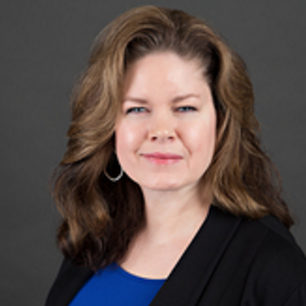
2. One-hour face-to-face chat with Fil & Bonnie
Fil is our Director of Engineering and has interviewed the majority of the technical staff at Safe. Fil is a human being who likes fishing, and in your interview he hopes to discover that you are a human being too.
This face-to-face interview includes what we covered in the above section.
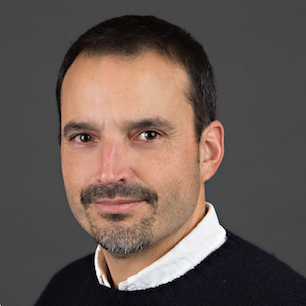
3. Two-hour hands-on technical interview with your potential team lead
We want to make sure you’re comfortable in the position you’re applying for, so this phase takes place on a computer. For product support specialists and QA testers, you’ll use our software, FME. For development roles, you’ll solve coding problems in C++, Java, or Python, depending on the role. Tip: Go into this phase knowing that we’re going to try and stump you. We want to see how you handle a challenge — this phase is about the problem-solving process, not the correct answer.
*
If you’re applying for a co-op position, your interview consists of just the face-to-face chat with Fil, often at your university campus. This takes about half an hour. It might be longer or shorter, but note the length doesn’t matter — if you’re out of there in 20 minutes, don’t assume the worst!
Post-interview
For co-op positions, offers happen quickly, and you’ll hear from us via your co-op office by the end of the week. For permanent positions, the decision-making process can be a little longer (2-3 weeks).
See also:
As a final thought, remember that interviewers want you to succeed! They asked you for an interview because they think you have what it takes. The face-to-face interview is a chance for them to see if you’re comfortable chatting about technical topics. Do your best to answer questions, keep a two-way conversation going, smile, and be genuine. You’ll do great. The fact that you just read this post proves how dedicated and awesome you are! You’re going to rock this!
View current job postings at Safe Software

Fil Vera

Tiana Warner
Tiana is a Senior Marketing Specialist at Safe Software. Her background in computer programming and creative hobbies led her to be one of the main producers of creative content for Safe Software. Tiana spends her free time writing fantasy novels, riding her horse, and exploring nature with her rescue pup, Joey.